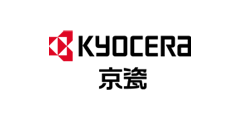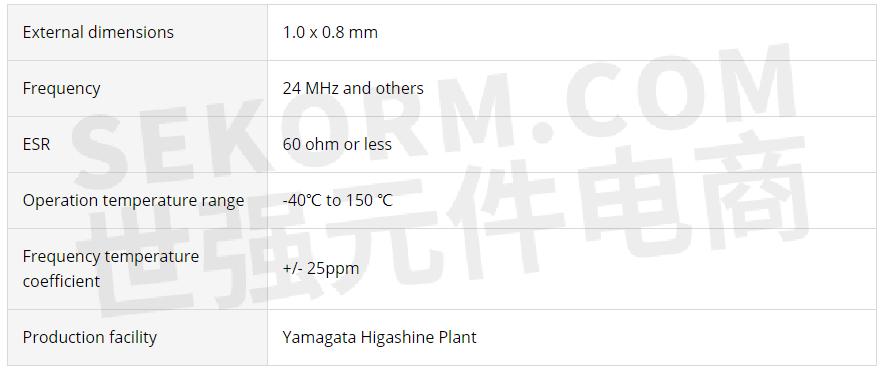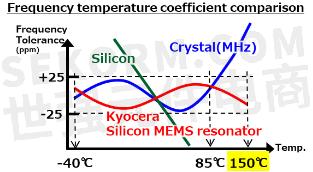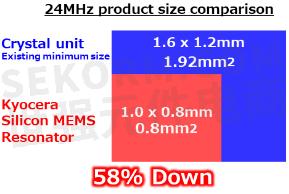KYOCERA Develops Silicon MEMS Resonator Production Technology

KYOCERA’s proprietary technology achieves outstanding frequency temperature coefficient and ESR characteristics, accelerating high-value-added timing device business.
February 13, 2020 Japan-Kyocera Corporation announced that it has successfully developed a proprietary technology to produce Silicon MEMS Resonators for the silicon MEMS market. Following Kyocera's July 2019 acquisition of 100% of the shares of Tikitin Oy, a Finnish venture company possessing advanced MEMS technology, and the subsequent establishment of Kyocera Tikitin Oy, the company has achieved outstanding frequency temperature coefficient and ESR characteristics*1 never previously attained with conventional quartz and silicon products.
Timing devices that generate stable frequencies at regular intervals are essential for the control and operation of electronic circuits. Driven in part by widespread adoption of IoT and wearable devices, as well as the acceleration of ADAS and EV technologies, the timing device market is expected to expand to 4.5 billion U.S. dollars by around 2030. Because demand is rising rapidly for timing devices that are smaller, lower-profile, higher-frequency, and superior with regard to temperature resistance, silicon MEMS resonators that meet these requirements will become widely used.
Kyocera will begin mass producing high-value-added silicon MEMS resonators in 2021, and will continue its technological development to address demand for further miniaturization, lower profile, and higher frequency, thereby advancing the field of high-added-value timing devices.
General Specifications and Production Facility

Main Features:
1. Outstanding Frequency Temperature Coefficient

As temperature rises, the frequency tolerance of conventional silicon becomes a straight line with a downward slope — and that of crystal becomes a cubic curve. Kyocera's silicon MEMS resonators achieve a narrow ± 25 ppm tolerance over a wide temperature range (-40℃ to 150℃) using proprietary doping technology.
2. Miniaturization

In the case of 24 MHz products, ESR characteristics are generally required to be 60ohm or less, and the 1.6 × 1.2 mm crystal size was considered the limit for miniaturization due to these physical properties. Kyocera's silicon MEMS resonator achieves the required characteristics in an area just 1.0 × 0.8 mm, a 58% reduction, using original element design technology.
*1 Low equivalent series resistance (ESR) makes it easier to generate a stable clock signal.
- +1 Like
- Add to Favorites
Recommend
- Silicon Labs Simplifies IoT Development with Simplicity Studio 5
- Silicon Labs Strengthens Isolated Gate Driver Portfolio
- News | Silicon Labs and Amazon Collaborate on Sidewalk, a New Shared Network for IoT Consumer Devices
- Silicon Labs Z-Wave Wireless Selected for Johnson Controls Next Generation Qolsys Smart Home Panel
- Silicon Labs Expands Isolated Gate Driver Product Family Ideal for Hybrid and Electric Vehicles (EV)
- Software Speeds Development of IEEE 1588 System Integration | Silicon Labs
- Silicon Labs and Skyworks reach agreement to sell infrastructure and automotive business
- Kyocera Awarded Sekorm the Excellent Distributor Award for the Remarkable Development of Automotive Electronics Market
This document is provided by Sekorm Platform for VIP exclusive service. The copyright is owned by Sekorm. Without authorization, any medias, websites or individual are not allowed to reprint. When authorizing the reprint, the link of www.sekorm.com must be indicated.





























































































































































































































































































































































































































































































































































































































































































































































































































































































